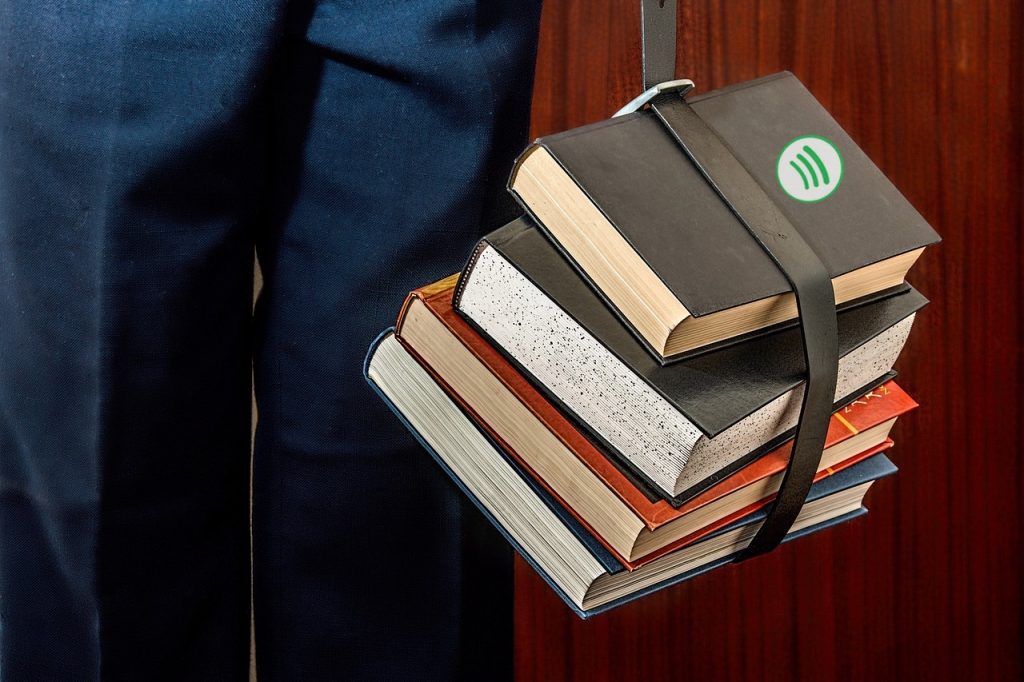
Where will Spotify’s bundling adventure take us next?
On Tuesday, NMPA president David Israelite advanced a different licensing schema to members of Congress that would change the game for music publishers — and complicate the game for everyone else.
Just moments after the Mechanical Licensing Collective (MLC) filed suit against Spotify, the National Music Publishers’ Association (NMPA) dropped another bomb. In a letter floated on Tuesday (May 21st) by NMPA chief David Israelite to members of Congress (see the full text here), a brand-new licensing schema was advanced.
Under the proposed update, the MLC and statutory mechanical licensing would remain, but music publishers would also have the freedom to negotiate their rates directly with streaming platforms like Spotify.
This is the type of change that music publishers have always wanted. However, Israelite was clearly motivated by Spotify’s sneaky shift into bundling and the statutory licensing discounts that come with it.
“The continued abuse of the statutory system by digital services, most recently Spotify, has made clear that additional action by Congress is needed,” Israelite wrote while pointing to routine, fraught renegotiations before the US Copyright Office’s Copyright Royalty Board (CRB).
“In these proceedings, music publishers and songwriters must face off against some of the biggest tech companies in the world: Spotify, Apple, Amazon, Google, among others, to establish rates for the use of musical works.”
But what if music publishers could call the shots with direct licensing negotiations, just like record labels? “Rather than picking who wins and who loses, Congress should allow rights holders the choice to license through the MLC using the statutorily set royalty rates or to withdraw from the MLC and operate in a free market if they meet certain conditions,” the proposal continues.
All of which sounds like a fantastic change for music publishers and a long-overdue shift — though for obvious reasons, Spotify would rue the day that publishing direct-licensing arrived.
There are many details that need to be clarified. But under the new plan, if a publisher or songwriter decides they’d like a higher rate than what is currently offered under statutory rates, they simply withdraw their catalog and demand more. Spotify (and other streaming platforms) must then negotiate or risk losing the song entirely.
That’s great for publishers and a worthwhile shift toward normalizing music licensing. But for Spotify, there’s plenty to hate here. For starters, licensing costs for publishing IP would quickly increase, and recording owners might not budge. The result is that songs would become more expensive to license, which is bad news for Spotify’s profitability ambitions.
Wall Street, now firmly focused on profitability instead of growth and pushing Spotify in this direction, would also seriously dislike this change given that Spotify’s core asset — the music — could become significantly more expensive. Those riding the wave on Spotify’s stock (SPOT) might decide it’s an opportune time to sell.
But beyond the direct content costs, there would be serious administrative and logistical issues to weather. Instead of sending data to the MLC and writing a fat check, Spotify would suddenly have to manage millions of individual negotiations with songwriters and publishers that want more money.
Nearly every IP owner behind a song with significant plays will likely demand more cash. And this isn’t something you can staff up against. Instead, Spotify would have to retool its entire licensing framework to manage millions of micro-negotiations at scale.
That’s not to say this isn’t the right answer and a step in the right direction. But it’s not a step that Spotify ever wants to take.
And make no mistake, there will be prices Spotify won’t pay, which means more grayed-out content and more dissatisfied customers. Though the exact details haven’t been hashed out, it’s possible that a single songwriter could remove a popular track from Spotify at any time, simply because they want a higher rate that Spotify doesn’t want to pay.
Which brings us to the next loser in this scenario: the labels.
It’s not that recording owners aren’t winning in this equation. They enjoy unfettered, direct negotiations with platforms like Spotify and receive far more than their music publishing counterparts. Theoretically, publishers should enjoy the same freedoms, though that doesn’t mean recording owners want to hand over a slice of their (far more significant) pie.
There’s a reason major label bigwigs haven’t been rallying to the defense of music publishers. Any substantive gains by music publishers probably translate into less money for recordings. Beyond that, a shift towards publisher direct licensing also means more disruption to the smoothly running, streaming gravy train.
Suddenly, publishers and songwriters can yank their content if they’re unhappy. At any moment, Spotify and other streaming platforms can get dinged by serious content holes and spotty selections.
Right now, Spotify has everything listeners want — except for the now-rare holdout like Garth Brooks. But what if users were routinely hitting unplayable potholes? None of that is good news for the billion-dollar streaming music pipeline that is now express-pumping cash into every major label coffer.
That might explain why major label CEOs like Universal Music Group’s Lucian Grainge haven’t been vocal on Spotify’s bundling fiasco. And why they’ll likely remain disinterested in a direct-licensing future for music publishers.
For major recording owners like UMG, this boat is best left un-rocked.

